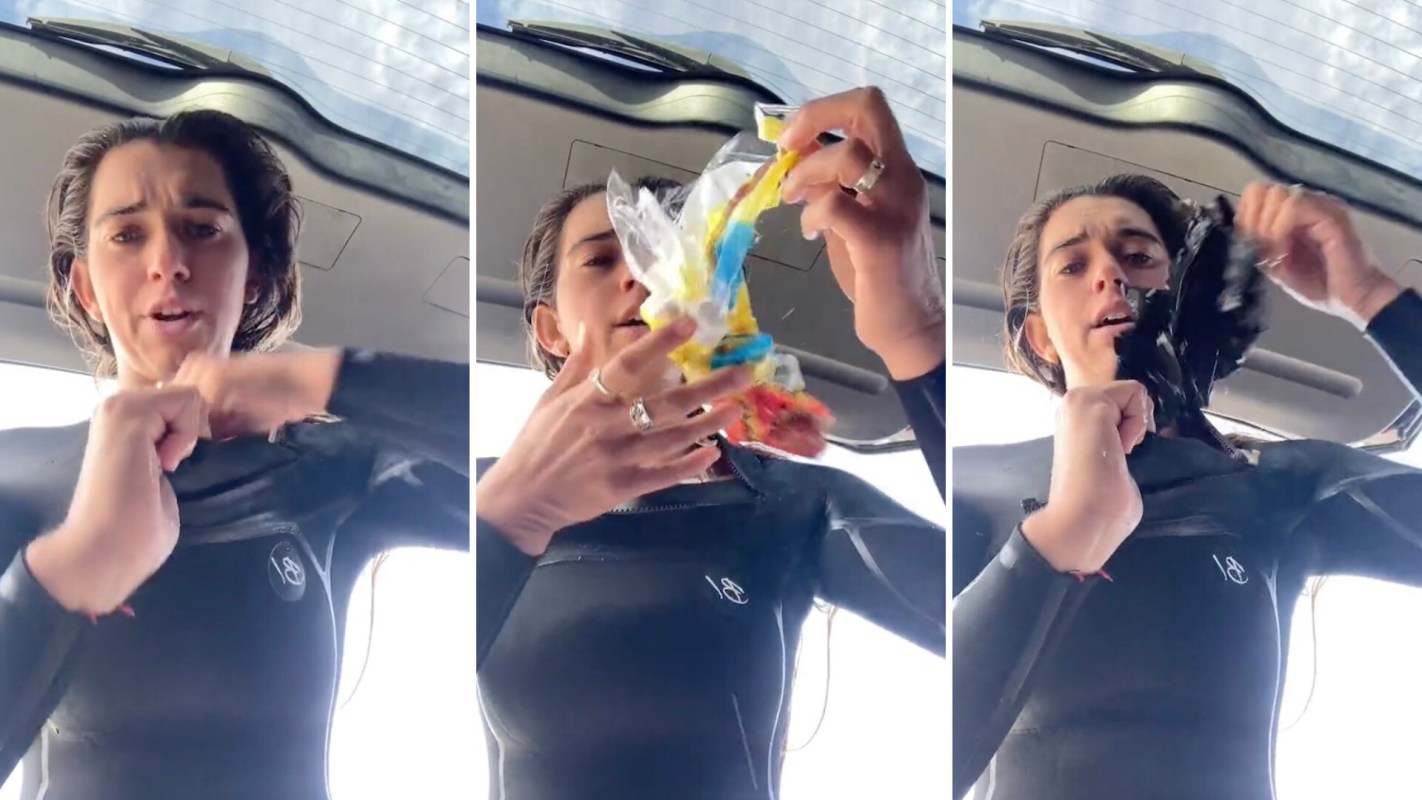When you think of the perfect beach day, you probably picture relaxing with a cold drink, occasionally jumping waves, and taking in nature's beauty — not picking up trash.
Unfortunately, TikToker Lucky (@luckysebestyen) shared a viral video in 2022 showing just how much garbage is floating in our oceans.
In the video, Lucky had just finished a short surf session and started removing a shocking amount of trash from her wetsuit she'd collected while surfing.
"Guys, please do not litter," she says as she takes a plastic wrapper from her wetsuit.
"The beautiful ocean should not look like this. When I'm paddling around trying to catch waves, I literally have to get out of the water because I fill up my suit with trash so fast," she adds while pulling more plastic bags and other pieces of the material out of her swimwear.
"I stuff my suit with trash every day, but this time of year is always the worst," she captioned the video, adding hashtags such as #litter, #pickupyourtrash, and #saveouroceans.
The clip has garnered tons of attention, with over 26 million views and more than one million likes.
@luckysebestyen I stuff my suit with trash every day but this time of year is always the worst #litter #pickupyourtrash #saveourplanet #saveouroceans ♬ original sound - Nikhil
Unfortunately, the plastic waste choking the oceans has only gotten worse since Lucky uploaded the video.
In 2022, the Intergovernmental Oceanographic Commission of UNESCO reported that there were roughly 50-75 trillion pieces of plastic and microplastics in the ocean. A 2023 study estimated that over 170 trillion plastic particles are floating on the ocean's surface alone.
All of this plastic waste harms humans, animals, and the environment. Marine animals such as seabirds, turtles, and whales may ingest or become entangled in plastic debris, with an estimated 100,000 marine mammals dying yearly from plastic pollution.
In addition, plastic waste can disrupt delicate marine ecosystems, leach toxic chemicals into the oceans, and hurt the global economy because of reduced tourism and increased cleanup costs.
Studies also show that microplastics — which are found everywhere on the planet — may cause cancer and other health problems in humans.
However, we can help clean our oceans by reducing the plastic waste we produce. Some easy ways to avoid plastic include buying reusable water bottles and grocery bags and bringing your own to-go containers to restaurants.
Commenters on the video were deeply saddened by the amount of plastic waste, with one simply saying, "This is heartbreaking."
Others felt inspired to take action, writing, "You've changed my life. I'm going to start doing this."
"This makes me so sad. I wish people would care about the consequences of their actions," another person said.
Join our free newsletter for cool news and cool tips that make it easy to help yourself while helping the planet.









